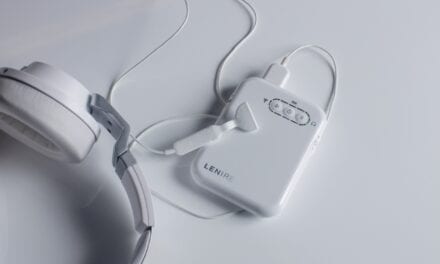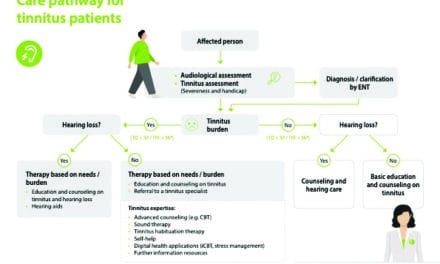Auris Medical Holding Ltd. (NASDAQ: EARS), a clinical-stage company dedicated to developing therapeutics that address medical needs in neurotology and central nervous system disorders, announced that the European Patent Office (EPO) has issued a notice of “Intention to Grant” for its patent application entitled “Treatment of Tinnitus Through Modulation of Chloride Co-Transporter NKCC1 in the Auditory System” (European Patent Application 11 894 529.3).
The allowed claims cover compounds modulating the sodium potassium chloride co-transporter 1 (NKCC1) for use in the oral treatment or prevention of tinnitus. As demonstrated in an animal model of acute noise trauma, administration of an NKCC1 inhibitor resulted in a significant reduction of a biomarker for the presence of tinnitus (p<0.02), according to Auris’ announcement. Inhibition of NKCC1 is said to reduce trauma-induced excessive intracellular chloride ion levels in inner hair cells and the resulting neural hyperexcitability in the auditory system, which underlies the perception of tinnitus.
The communication from the EPO concludes substantive examination of the patent application, which is now expected to issue as a patent once the issue fees are paid and the patent office concludes its respective administrative procedures. A corresponding patent application is currently pending before the US Patent and Trademark Office (USPTO) and was already granted in Japan.
“We are very pleased with this new addition to our patent estate in tinnitus, which remains an area of great unmet medical need,” said Thomas Meyer, Auris Medical’s founder, Chairman, and CEO. “NKCC1 represents a new and promising target for tinnitus therapy, particularly because it may allow for oral treatment and thus complement Keyzilen, our investigational tinnitus drug for intratympanic administration. We intend to develop a proprietary NKCC1 inhibitor through our new subsidiary, Zilentin Ltd, which we recently established in order to bundle our activities and assets within the therapeutic areas of tinnitus and hearing loss.”
Source: Auris Medical





